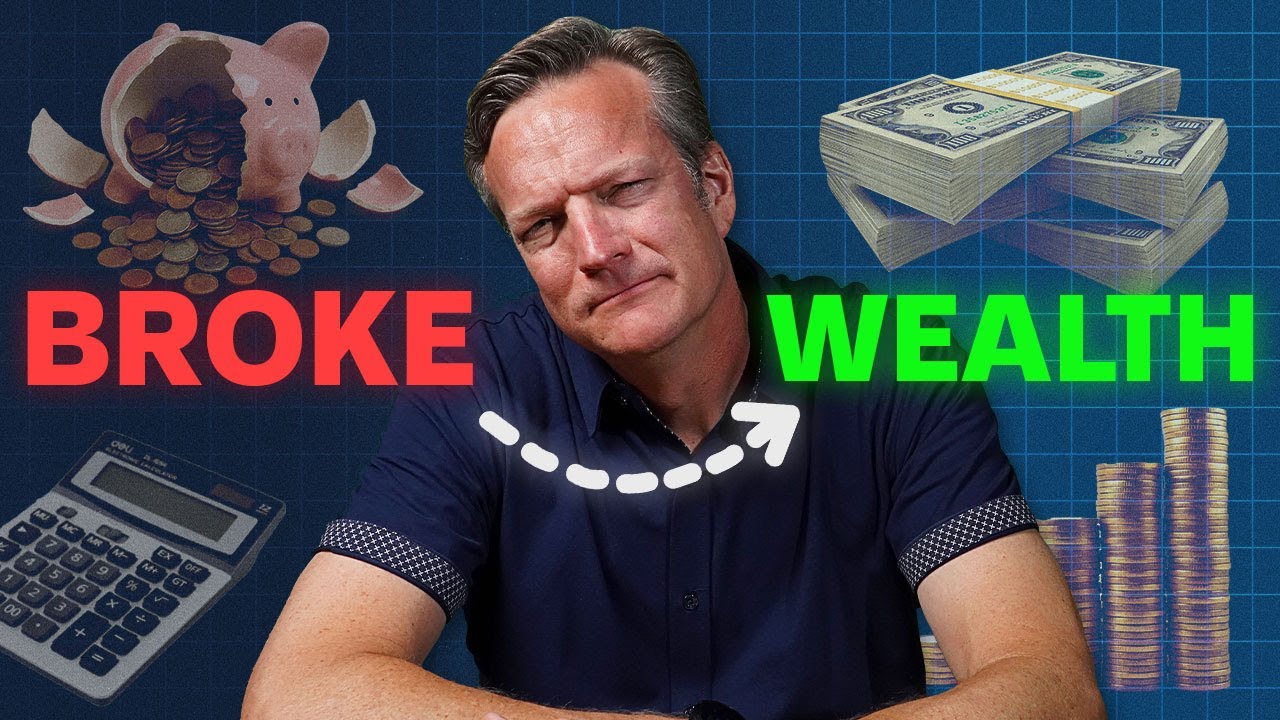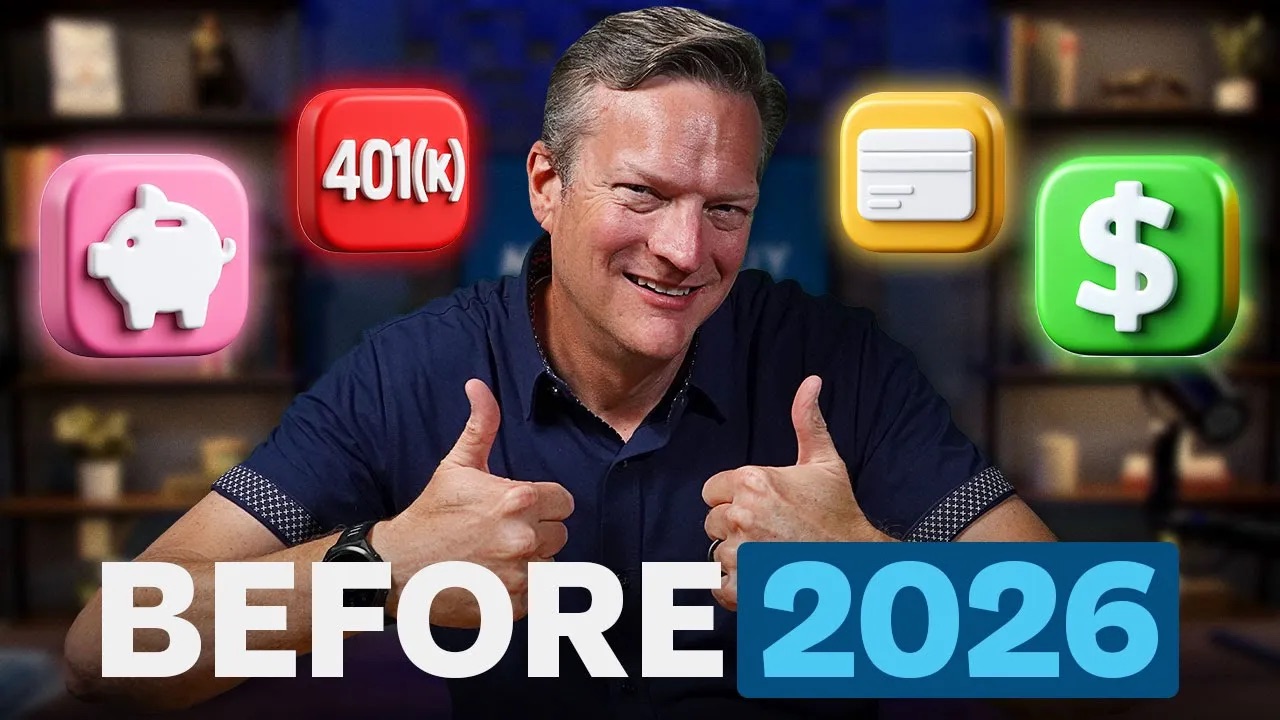First question is from X Zenith 42, and I really like this question. He said Brian says he felt like he had money around age 41 or 42 around there. Can you describe what changed the number, the income, your money guy
Wealth Multiplier, like what all went into that feeling? Then he also said, what changes did you make to go from frugal-saver Brian to spender Brian or maybe more financially free Brian?
I think it's good to give some context here because that's spot on, Zenith. The fact that I say this to kind of give the experience to share that I think it's okay in your 20s, you're going to feel broke. But the good news about being in your 20s is you have time, but you don't have a lot of resources typically is that you can also put up with anything. It's so funny that pre-show Katie was showing me kind of vacation anniversary trips, and I was looking at this thing. You know, it was very cute, and I was like, this is the perfect vacation for Katie because they're early in their marriage. They don't have kids yet, so they can go do these types of things. That's the beauty of your 20s. You're discovering new things. Daniel just got back from New Mexico, so you're seeing things for the first time. You're experiencing things for the first time, so your eyes are open. So it doesn't take a lot to create big excitement and big changes. That's okay because you're in your 20s. You're adaptable, but you don't have a lot of money.
Then you fast forward and get into your 30s, and that's when you start having a growing family. You have the first house come on board because we know that the average age is around 33, 34. You're just going to feel like the whole world is working against you. There are just so many things pulling at your pocketbook, at your wallet, that you're squeezed. That's exactly why we call it the "messy middle" because, especially with the crying babies, the job needs more from you, you just feel like you are being pulled in all kind of different places that I feel like a lot of people will get fatigued. They will give up. They'll want to give up. They'll see their friends and their peers that seem like they've got it all figured out, but they're doing it all at two or three hundred dollars at a time with monthly payments and using debt as the bridge to nowhere.
It was true that when I, by the time I reached 40 in my early 40s, I felt like the rays of sunshine broke through. I think a lot of this is also because I was hard on myself in my 20s and 30s because I remember I've shared that I talked to my wife in my 20s. I said, "Look, we're going to prioritize saving and investing a chunk of our income now while we don't have a lot of commitments," and then we even prioritize this in our 30s in the messy middle because we knew it was going to be tough, but if we did this, this is the promise I made to her. If we do this, by the time we reach our 40s, we're going to be able to take our foot off the accelerator, and I had some personal goals too. I wanted to make a hundred thousand dollars by the time I was 30 of income, and I wanted to have seven figures of liquid net worth by the time I was 40.
Both of those goals, I actually missed by exactly one year, because, you know, I started my company when I was late - I think I was around 27 or 28. Somewhere in that range. I'm getting so old that years run together, but it was in 2002 when I went out on my own. By the time I was 31, I crossed six figures, and then I didn't cross seven figures liquid until I was 41. Now I had a net worth over the seven figures, but liquid is what I was thinking about when I talk about cash, when I talk about your investments, your after-tax investments, and other things like that. It was one of those things where I had reached that critical mass or what I'd like to call the boiling point of your wealth building.
It happened in my 40s, and I think it's important to share that because a lot of people in society are telling you, "look, your best in your 20s and 30s, don't worry about building up those assets to invest and so forth." That's all the boiling point of the critical mass of bowling does not occur for water until 100 degrees Celsius or 212 degrees Fahrenheit, right? But up until you reach that temperature, it looks like nothing's happening. So I think a lot of people in their 20s and 30s can give up too early, and I just want to give you Zenith, the inspiration to say stick with it, stay the point, reach that boiling point with your assets so you can actually get to see the fruit of all your hard work. There's a reason that when Ramsey Solutions did their biggest study on millionaires, it took exactly 27 years for the typical millionaire to cross into - and that's in your 40s. I mean, that's where the millionaires actually start popping up all over the place, and yes, there are some exceptions to rules in their 20s and 30s. We work with a number of you, but for most people, it's going to happen in your 40s. Stick with it; it gets really good then. You'll start spending more on vacations than you made in your first year out of college on your income. That's the payoff point. Life can be good; just stay the course. And then don't think I'm telling you to be a miser. You can bedazzle your basic life while you're younger as well and still do vacations and trips. Just don't be trying to make it Instagram perfect like a lot of people in your peer group will be doing. So it's a big part of it in my mind - just thinking through it - seeing that your money invested is growing to a significant enough point that, like, you feel okay, it's making enough money.
Well, there are two things that are crossing. You're starting to reach some of your peak earning years. The peak earning years happen in your late 40s, so even in your early 40s, you're seeing the payoff in your career. So your income has reached a point, plus your assets have reached a point. If you've done automated wealth building where you're automatically, on a monthly basis, putting money into retirement savings, putting money into your kids' college, putting money towards paying off the mortgage, you know that everything's automated, and it really is like you've reached that point to where everything lines up. Whereas it felt like in the 20s and 30s, it was all a struggle. I'm having to figure out every dollar and be very disciplined with it to make sure that I'm prioritizing these assets, whereas in the 40s, your income and everything line up in a good way. The kids get a little bit older; now they're not at college yet, that's when that's a whole other expense level kicks in. But you are at this point where going on family vacation seems a heck of a lot easier versus when they're babies. That's true.
Want to know what to do with your next dollar, you need this free download:
the Financial Order of Operations. It’s our nine tried-and-true steps that will help you secure your financial future.













